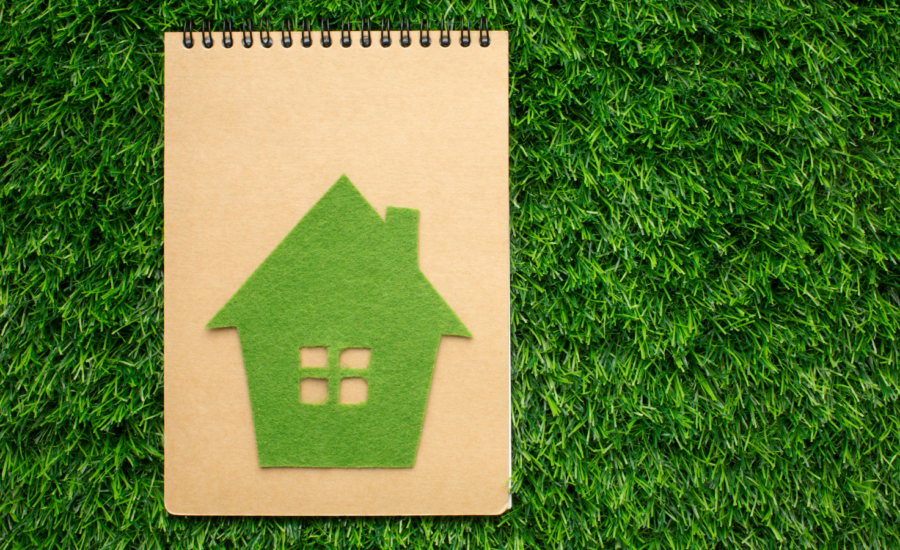Canadian home sales forecast downgraded—but the market may be turning a corner
Home sales are down, prices are softening, and buyers are hesitant—but conditions may be shifting as summer gains momentum.
Photo by Christinne Muschi / The Canadian Press
For the second time this year, the Canadian Real Estate Association has downgraded its forecast for home sales in 2025, even as it says a turnaround could be looming following increased activity in June.
The association reported that the number of homes changing hands across the country in June rose 3.5% compared with a year ago. Canadian home sales last month also increased 2.8% compared with May on a seasonally adjusted basis.
In its outlook released Tuesday, CREA said it now expects a total of 469,503 residential properties to be sold this year, a 3% decline from 2024. In April, the association forecast the number of home sales for 2025 to remain essentially unchanged from last year, which itself marked a steep cut from its January forecast of an 8.6% year-over-year increase.
Resource highlight
You’re 2 minutes away from getting the best mortgage rates.
Answer a few quick questions to get a personalized quote, whether you’re buying, renewing or refinancing.
compare nowPowered by ratehub.ca
CREA says market recovery may be coming
The national average home price is forecast to fall 1.7% on an annual basis to $677,368 in 2025, which would be around $10,000 lower than predicted in April.
CREA senior economist Shaun Cathcart said that despite a “chaotic start to the year,” the latest data suggests the housing market rebound originally forecast for this year—before it was upended by the Canada-U.S. trade war—may have “only been delayed by a few months.”
“At the national level, June was pretty close to a carbon copy of May,” said Cathcart in a press release, cautioning “we’re not out of the woods yet” given U.S. President Donald Trump’s latest 35% tariff threat.
The association said the tariff-related uncertainty that drove so many buyers back to the sidelines earlier this year ended up taking a larger bite out of activity in B.C., Alberta and Ontario than was expected three months ago, but “the good news is markets appear to be entering their long-expected recovery phase, fuelled by pent-up demand, lower interest rates, and an economy that is expected to avoid worst-case tariff scenarios.”
“Most housing markets continued to turn a corner in June, although market conditions still vary considerably depending on where you are in Canada,” said CREA chair Valérie Paquin. “If the spring market was mostly held back by economic uncertainty, barring any further big shocks, that delayed activity could very likely surface this summer and into the fall.”
Home sales expected to pick back up in 2026
CREA said it now forecasts national home sales in 2026 to improve by 6.3% to 499,081. That would put activity back on track with what was expected in its April forecast, when it predicted a 2.9% gain in sales next year.
The national average home price is expected to increase 3% from 2025 to $697,929 next year. Meanwhile, the national average sale price fell 1.3% in June compared with a year earlier to $691,643. There were 47,871 home sales recorded last month, up from 46,237 in June 2024. The association said the recovery in sales activity over the past two months was led overwhelmingly by the Greater Toronto Area.
Still, activity remains slower than usual, said Cameron Forbes, a Toronto-area broker and general manager at Re/Max Realtron Realty Inc. “The uncertainty of the Trump tariffs and the impact on, certainly in Ontario, the manufacturing context and everything, still has a lot of buyers on the sidelines that probably shouldn’t be,” said Forbes in an interview. “It’s still a market where I think buyers are unfortunately a bit uncertain. Many of them who have jobs, who have security of those jobs, who have equity in homes, that would be a great time for them to make a trade to a preferred location or a larger home for their family, but they are looking at the headlines and seeing the uncertainty related to tariffs.”
Tools
Use our mortgage payment calculator
Our calculator will help you understand what a mortgage will cost you in real terms while factoring for interest rates, amortization period, fixed or variable terms, and more.
Inventory down from May but home sales expected to rise
The number of newly listed properties throughout the country was down 2.9% month-over-month from May. A total of 206,435 properties were listed for sale by the end of the month, up 11.4% from a year earlier and just 1% below the long-term average for this time of the year.
“June’s sales performance came in broadly as expected, with Canadian transactions continuing their gradual recovery from their early-year depths,” said TD economist Marc Ercolao in a note. “We expect home sales will continue to rise in the second half of the year as pent-up demand continues to trickle into the market. That said, the sales level should remain subdued as economic uncertainty remains elevated, especially with Canada facing new tariff threats.”
BMO senior economist Robert Kavcic said there are three major factors still holding back the housing market, including a “sluggish” job market being aggravated by the trade war. With the Bank of Canada holding its key policy rate steady, he said mortgage rates of around 4% are also “not low enough to improve the affordability calculus in a demand-sparking way.”
“And, market psychology now appears bearish,” said Kavcic in a note. “Just as expectations of higher prices drove accelerating gains on the way up, the understanding that prices are falling is holding back buyers on the way down in some locations.”
Forbes added that much is riding on the outcome of ongoing trade negotiations between Canada and the U.S., which currently hold an Aug. 1 deadline. Reaching a compromise could prompt buyers to return, leading to a more “healthy market,” he said. But failing to reach an agreement on time would mean further uncertainty in the housing market, he said. “If that’s the case, then we’ll continue to have fewer sales for at least the next three or four months until the impacts of whatever comes to fruition are better known.”
Newsletter
Get free MoneySense financial tips, news & advice in your inbox.
Read more about real estate:
- Weak condo market means tough choices for potential move-up buyers
- Rents easing across most major markets but many tenants not feeling relief: CMHC
- How much income do you need to buy a home in Canada? A look at housing affordability in May 2025
- Here’s how much a GST break could save first-time home buyers
Buying a new build? You may qualify for a CMHC Eco Plus refund
CMHC Eco Plus is a new program that encourages Canadian home buyers to opt for energy efficiency. Here’s how it works, plus more programs for greener homes.

Image from Freepik
Without exception, when you purchase a home in Canada with a down payment of less than 20%, you have to pay a CMHC insurance premium (also known as mortgage default insurance or mortgage loan insurance). It’s a federally mandated requirement, administered by the Canada Mortgage and Housing Corporation, and it serves the dual purpose of protecting lending institutions while enabling purchasers to get into the housing market sooner, with a down payment as low as 5%.
CMHC insurance premiums range from 0.6% to 4.5% of the total mortgage amount (the smaller the down payment, the higher the rate), and they are typically tacked onto the mortgage. To help take the bite out of that expense, a new sustainability initiative called CMHC Eco Plus offers a 25% partial premium refund to buyers of newly built energy-efficient homes. CMHC Eco Plus launched on July 8, 2025. Let’s look at the details and how home buyers can benefit.
Which homes qualify for CMHC Eco Plus?
To qualify for CMHC Eco Plus, a new house or condo “must meet the building standards of eligible certifications or the energy efficiency target based off the EnerGuide Rating System (ERS).” Eligible certifications include Energy Star, R-2000, LEED, Passive House and others. The full list of eligible standards is available on the CMHC’s website.
In a recent CMHC mortgage consumer survey, 61% of respondents said energy-efficient features were an important factor in their home-purchasing decision-making. The CMHC Eco Plus program aims to nudge you in the direction of choosing a more energy-efficient new home—a decision that could amount to a higher sticker price but also pay dividends in terms of long-term energy savings.
Here’s an example of how much you can save: if you purchased a new home for $500,000 with a 10% ($50,000) down payment and a 90% mortgage ($450,000), the CMHC insurance premium would be 3.1% of your loan, which is $13,950. If your home meets one of the recognized energy-efficiency standards, you can apply for the 25% CMHC Eco Plus rebate, which would be $3,487.50. (See all CMHC insurance premiums, and use MoneySense’s mortgage insurance calculator to estimate your cost.)
Resource highlight
You’re 2 minutes away from getting the best mortgage rates.
Answer a few quick questions to get a personalized quote, whether you’re buying, renewing or refinancing.
compare nowPowered by ratehub.ca
How do you apply for CMHC Eco Plus?
To get a refund from CMHC Eco Plus, home buyers who have mortgage insurance must submit an application to the CMHC within two years of their mortgage’s closing date. You’ll need to provide either the final certificate from one of the eligible certification programs and/or the home’s EnerGuide label or EnerGuide Renovation Upgrade Report (RUR). Get more details from CMHC Eco Plus.
Incentives to make an existing home greener
What about Canadians who already own a home? There’s a CMHC incentive program for you, too.
As the CMHC shared in a YouTube video, “we want to make it easier for more CMHC mortgage loan insurance clients to buy, build or renovate green.” With that in mind, the organization offers those home owners the Eco Improvement initiative. If you spend at least $20,000 on energy-efficiency improvements within the program’s three categories—renewable energy systems, mechanical systems, and building envelope—then you’re eligible to apply for a 25% premium refund.
There’s also Natural Resource Canada’s Oil to Heat Pump Affordability program, which offers up to $10,000 in rebates for lower-income Canadians currently heating their homes with oil to transition to energy-efficient heat pumps.
Coming soon: Canada Greener Homes Affordability Program
Nearly 400,000 Canadian households have participated in the Canada Greener Homes Grant program, a government initiative that was mothballed in the spring of 2024 (the feds say the funds allocated for the program were depleted much sooner than anticipated). In its wake, another initiative known as the Canada Greener Homes Affordability Program is slated to launch before the end of 2025.
Although few details have been released, the National Resources Canada (NRCan) program is designed to provide low- to median-income home owners and tenants with “no-cost home retrofits, such as insulation and heat pumps.” We’ll share more details as they become available.
Newsletter
Get free MoneySense financial tips, news & advice in your inbox.
Read more about home improvement:
- Planning a home renovation? What to know about financing options
- How much are solar panels in Canada?
- Upgrading your backyard? Here’s how to keep home reno costs in check
- How to renovate your home on a fixed income
- How much it costs to install a home security system in Canada
Share this article Share on Facebook Share on Twitter Share on Linkedin Share on Reddit Share on Email

About Mark Douglas Wessel
Mark Douglas Wessel is an urban journalist and communications consultant whose writing focuses on what we can do to create a more sustainable, more liveable world.



